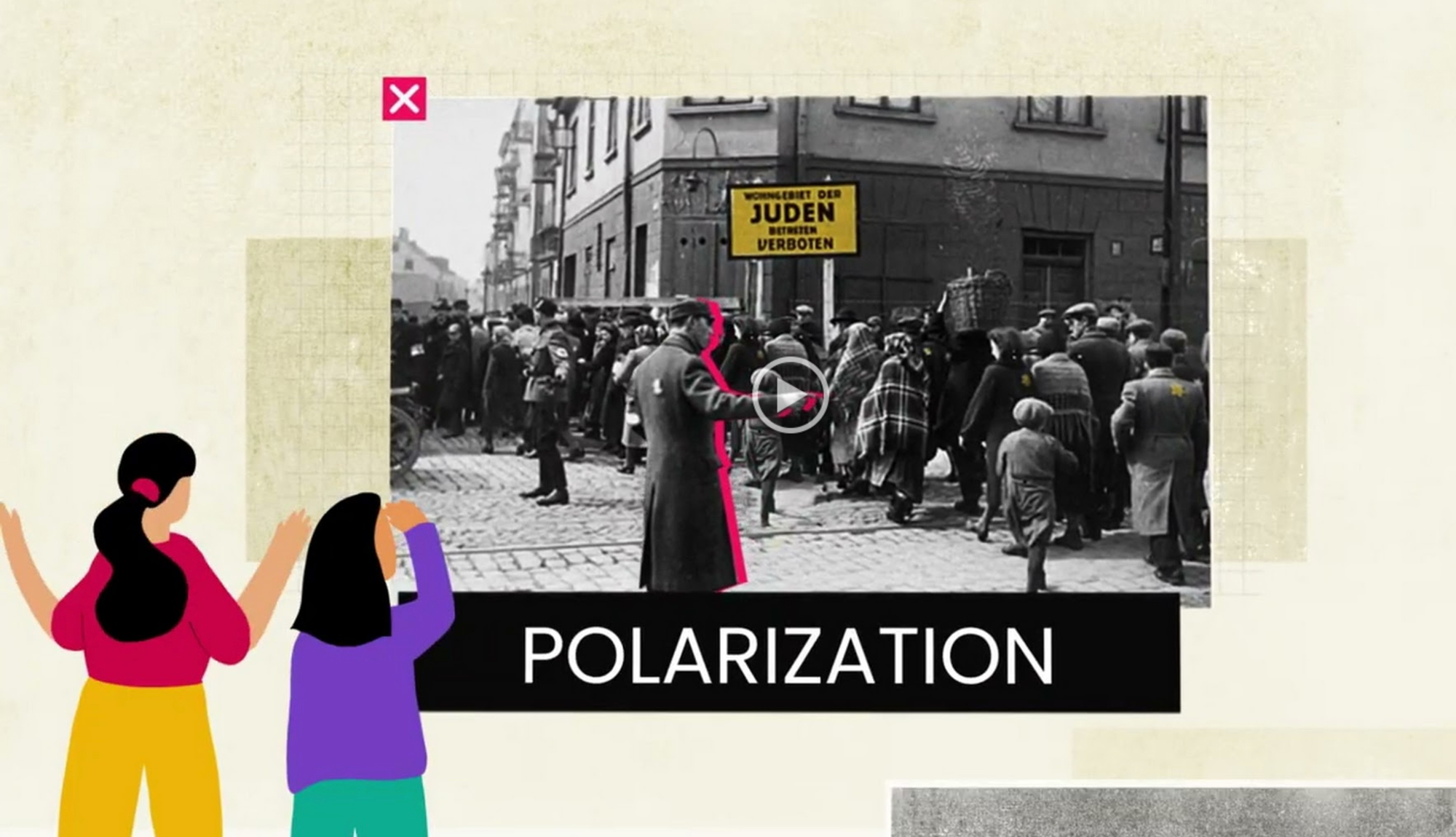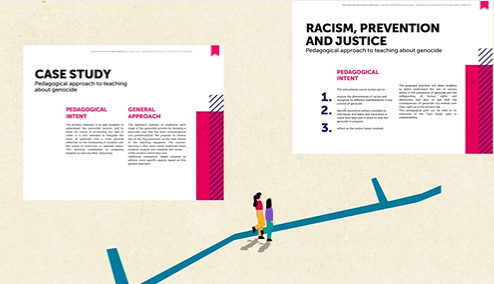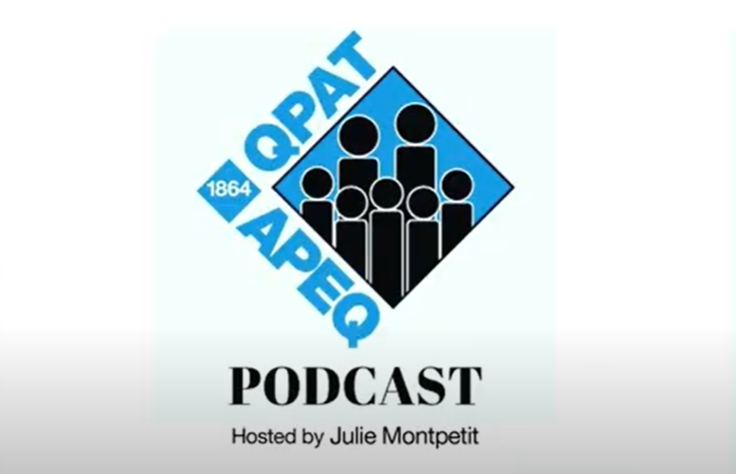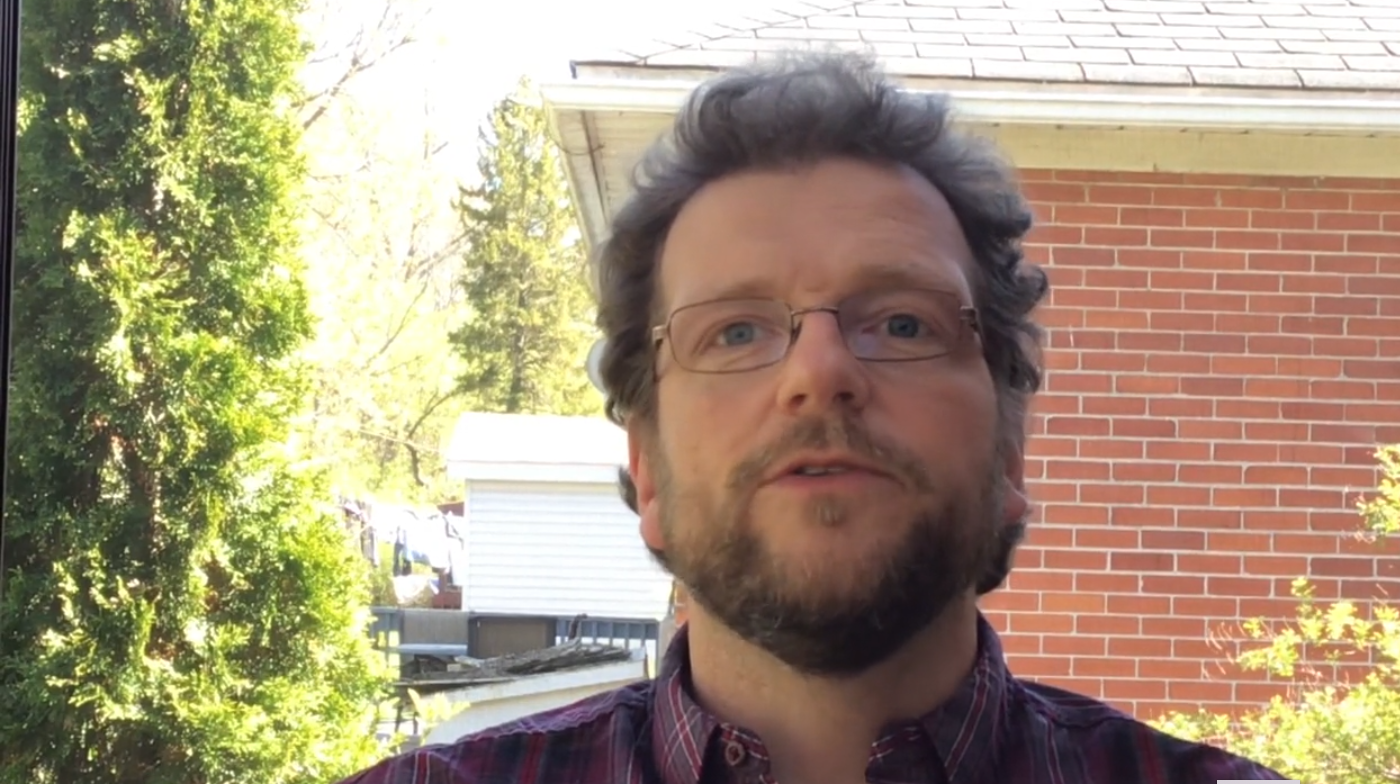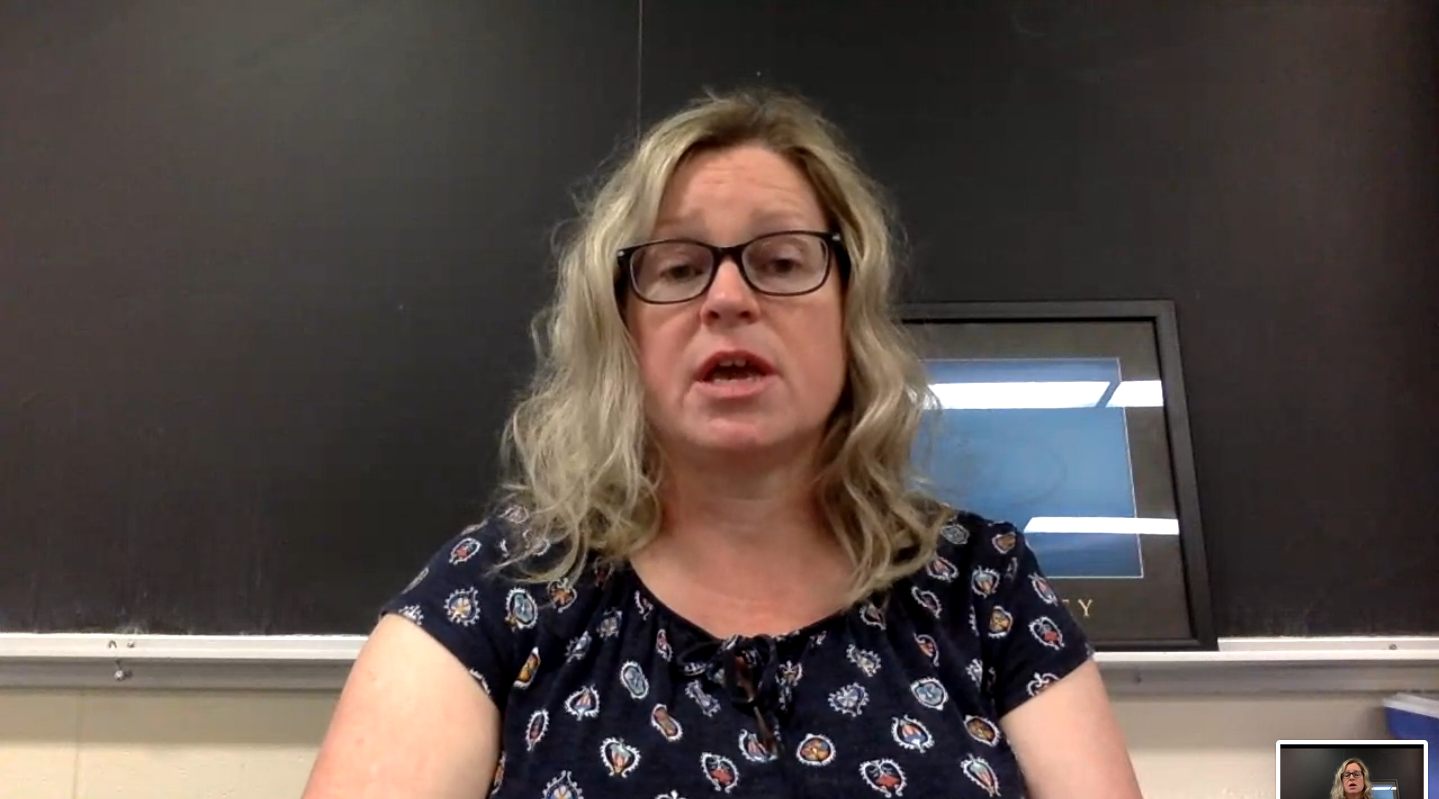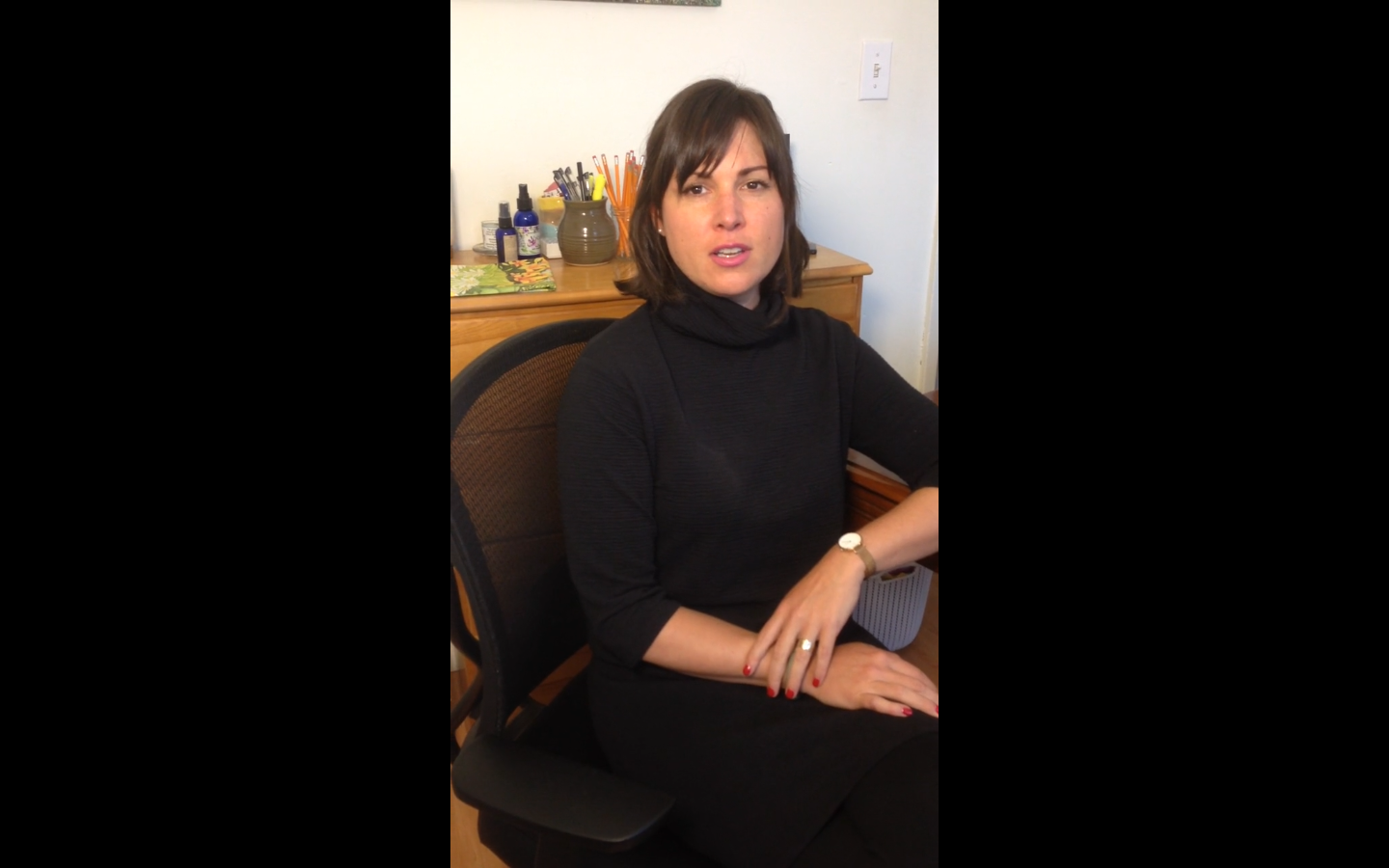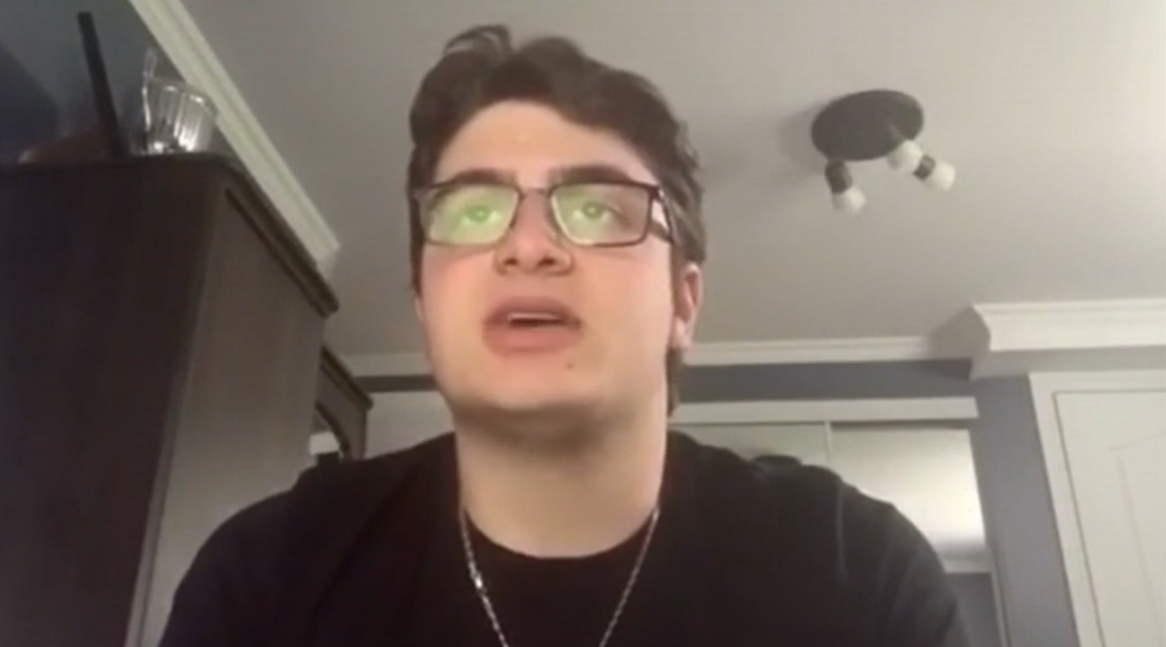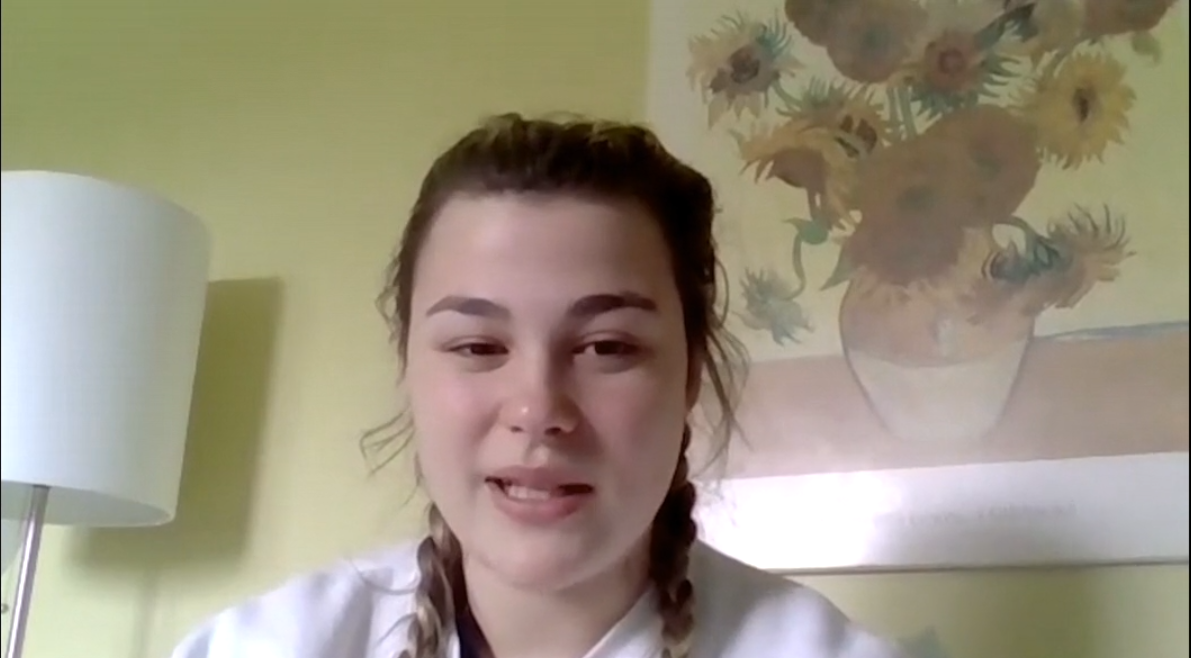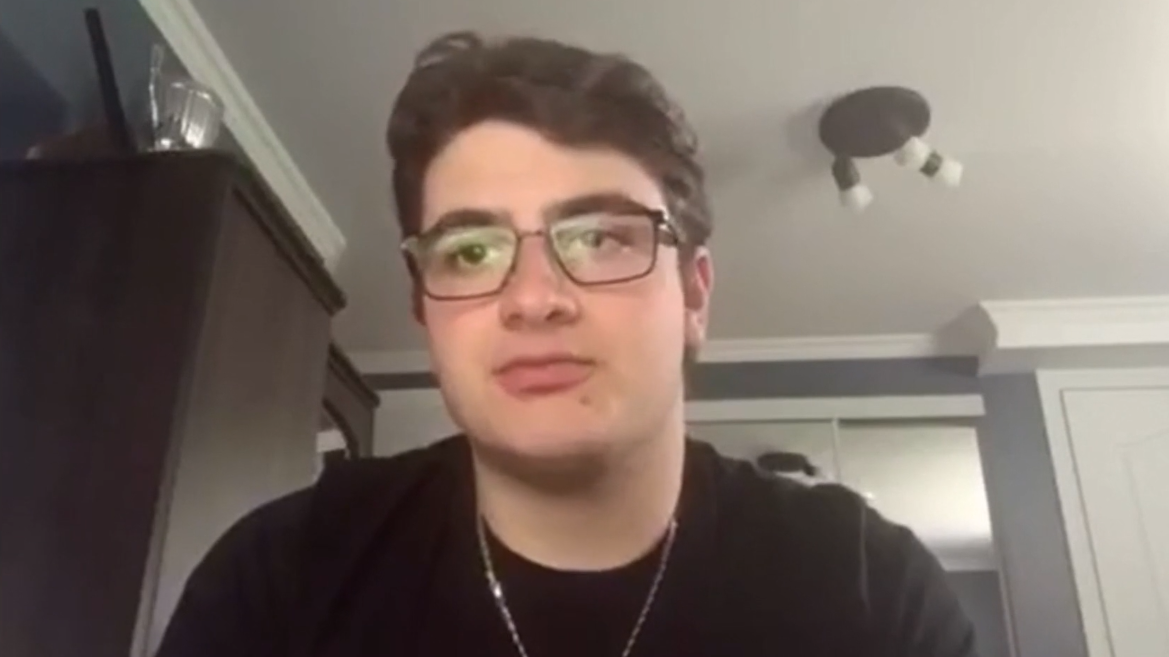THE GUIDE
The guide: ‘Studying Genocide’
The Foundation for Genocide Education was the driving force behind the Quebec Education Ministry’s initiative to create a universal guide on teaching genocide.
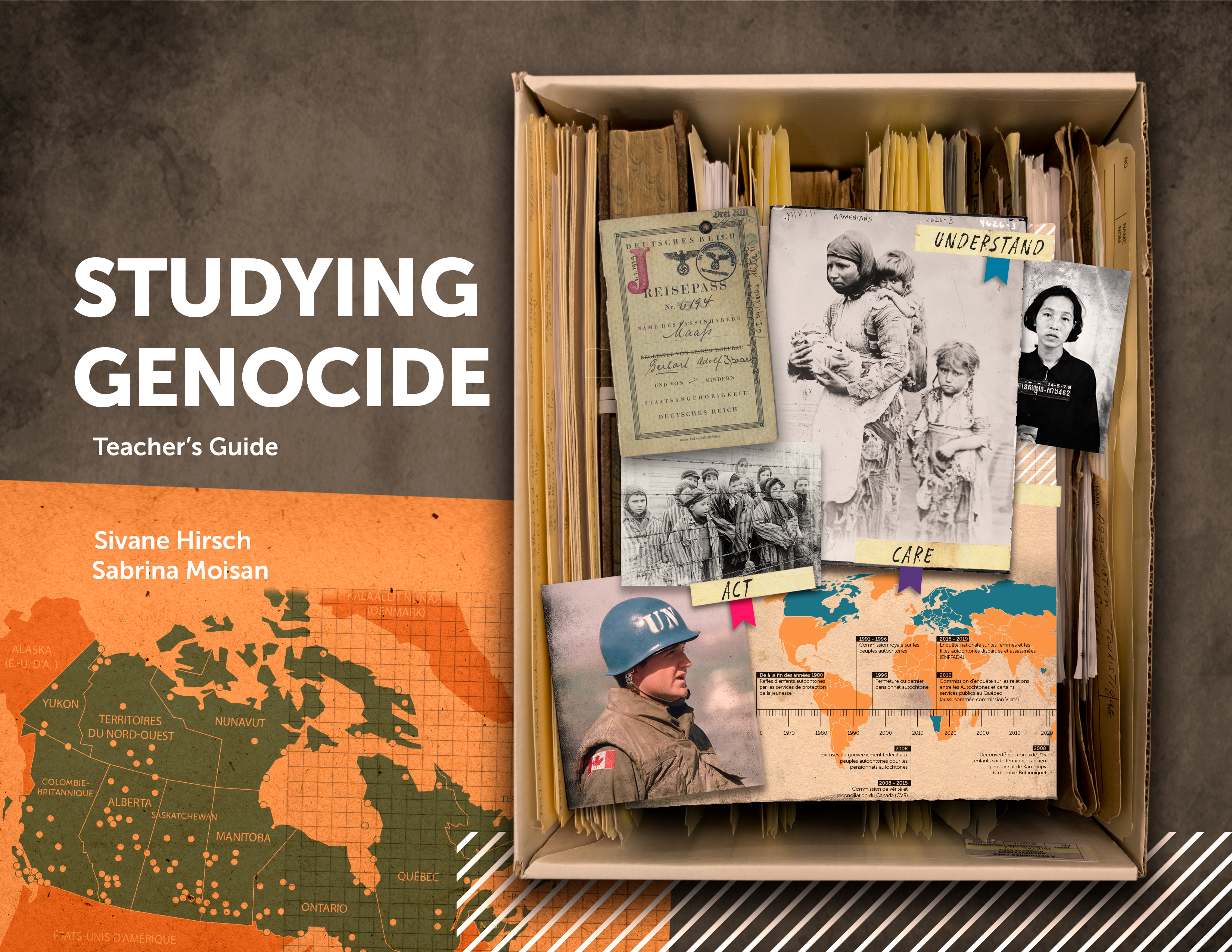
The guide is the result of a collaboration between The Foundation for Genocide Education, the Université de Sherbrooke, the Université du Québec à Trois-Rivières, the Quebec Education Ministry, the Montreal Holocaust Museum, and representatives of the various communities highlighted in the guide. Lead researchers are: Sivane Hirsch, Didactic Professor of Ethics, Department of Education, Université du Québec à Trois-Rivières and Sabrina Moisan, Professor of History Education, Faculty of Education, Université de Sherbrooke
This educational tool features case studies of nine significant 20th century genocides, including the cultural genocide of our First Nations, definitions of the stages leading to genocide, along with customizable teaching plans and reference materials. The interactive guide is now available in French and English online in every high school across Quebec, reaching over 310 000 students in 800 schools. No other resource has achieved such a widespread educational impact on the study of genocide. Educators from across Canada are eager to review this unique educational tool and bring it to their classrooms.
After public consultations with teachers across the province, our foundation discovered that educators struggle to tackle the topic of genocide in their classrooms. With the vast array of available material, the subject’s sensitive nature, and teachers’ time-pressed schedules, educators need an all-in-one pedagogical and historical resource on genocide education. We conveyed this information to the government. In response, the Quebec Ministry of Education engaged Professors Hirsch and Moisan to create this unique guide specifically tailored to teachers’ needs.
PR video
Instructional Video
Significant 20th century genocides
Features (nine) significant 20th century genocides, including the Holocaust, the genocide against the Tutsi in Rwanda, the Armenian genocide, and the cultural genocide against our First Nations. Each genocide is presented similarly, enabling teachers and students to draw comparisons between events and deepen their understanding of the genocidal process.
Best Resources
The guide combines the best resources on genocide education in one accessible and interactive tool. University professors, educators and community leaders have provided support and reviewed the guide. As well, training workshops will be offered to teachers to help them use the guide effectively.
EASY-TO-USE FORMAT
The guide’s easy-to-use format allows teachers to achieve their pedagogical goals quickly. It provides an instructional video showing how the guide can be used, additional reference material for further learning and links to survivor video testimonies. Its flexible and interactive design is adaptable to several disciplines and individualized classrooms.
Teacher Training Workshops
To ensure that teachers have the knowledge and confidence to discuss sensitive topics like genocide with their students, training workshops are available in both English and French on how to use the guide effectively. These workshops are developed and facilitated by pedagogical experts from the Montreal Holocaust Museum, in collaboration with the authors of the guide, Professors Sivane Hirsch and Sabrina Moisan.
Good professional development opportunities offer teachers a chance to hone their skills to best meet their students’ needs. These full-day workshops allow both new and experienced teachers to expand and elevate their skills that help them in supporting students within the classroom. They also encourage teachers to engage with and learn from each other. and to have the opportunity to ask questions.
Students will benefit as well from this pedagogical training. Studies have found that student achievement improves by as much as 21 percentile points as a result of teachers’ participation in well-designed professional development programs.
RECENT WORKSHOPS
Webinar overview of guide – February 6, 2023
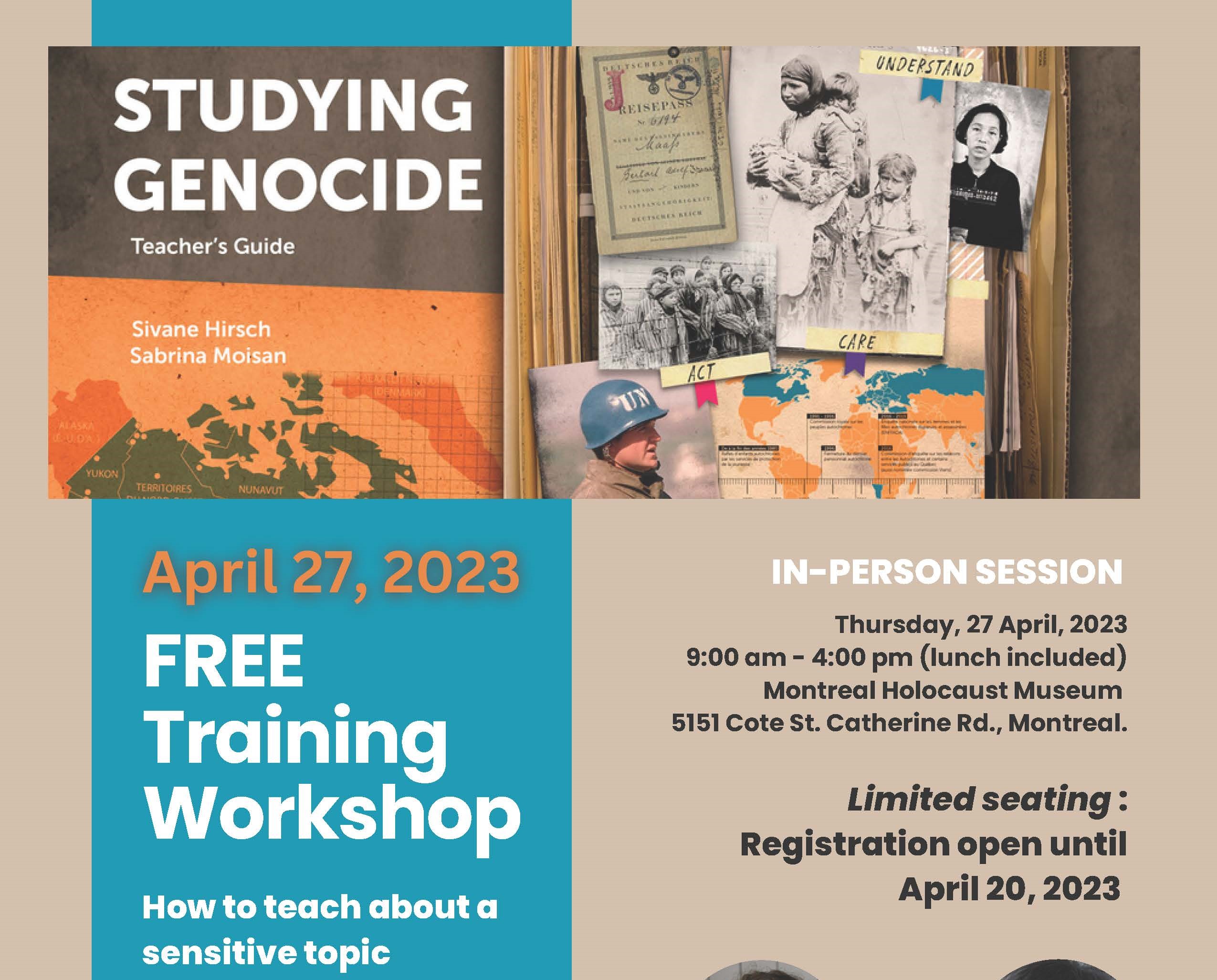
Teacher training day at Montreal Holocaust Museum – April 27, 2023
- Teacher training workshop - April 2022
- Teacher training workshop - April 2022
- Sabrina Moisan (U de Sherbrooke), Sivane Hirsch (UQTR), Marcy Bruck (FGE), Georges Lemieux (MEQ) - April 2022
- Montreal City Hall Press Conference 2018
- Montreal City Hall Press Conference 2018
- Teacher training day - April 27, 2023
- Teacher training day - April 27, 2023
- Teacher training day - April 27, 2023
- Teacher training day - April 27, 2023
WHAT STUDENTS AND TEACHERS SAY
Contact
Montreal, QC, Canada H4P 1K4

